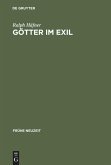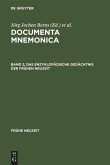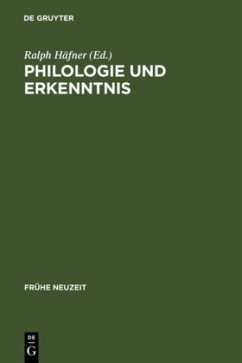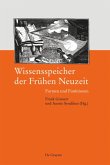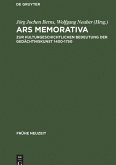In the early modern age the 'commentary' genre experienced an astounding upswing. On the one hand, scholars harked back to the use of this text variety in ancient times, on the other they used commentaries to respond to contemporary challenges in the fields of literature and scholarship. The use of commentaries is an absolutely essential component in transformation processes like modernization and secularization. The volume assembles the papers delivered at a conference in Wolfenb ttel and contributes to the more precise understanding of a widely underrated scholarly practice located between innovation, subversion, and tradition.
Die Gattung des 'Kommentars' erlebt in der Frühen Neuzeit einen erstaunlichen Aufschwung. Einerseits besinnen sich die Gelehrten auf seine antiken Grundlagen, andererseits antworten sie mit dem Kommentar auf aktuelle Herausforderungen im literarischen und wissenschaftlichen Feld. Ohne die Praxis des Kommentierens sind Transformationsprozesse wie Modernisierung und Säkularisierung nicht vorstellbar. Der Band versammelt die Beiträge eines Wolfenbüttler Arbeitsgesprächs und liefert Bausteine zum Verständnis einer unterschätzten gelehrten Praxis zwischen Innovation, Subversion und Tradition.
Die Gattung des 'Kommentars' erlebt in der Frühen Neuzeit einen erstaunlichen Aufschwung. Einerseits besinnen sich die Gelehrten auf seine antiken Grundlagen, andererseits antworten sie mit dem Kommentar auf aktuelle Herausforderungen im literarischen und wissenschaftlichen Feld. Ohne die Praxis des Kommentierens sind Transformationsprozesse wie Modernisierung und Säkularisierung nicht vorstellbar. Der Band versammelt die Beiträge eines Wolfenbüttler Arbeitsgesprächs und liefert Bausteine zum Verständnis einer unterschätzten gelehrten Praxis zwischen Innovation, Subversion und Tradition.


